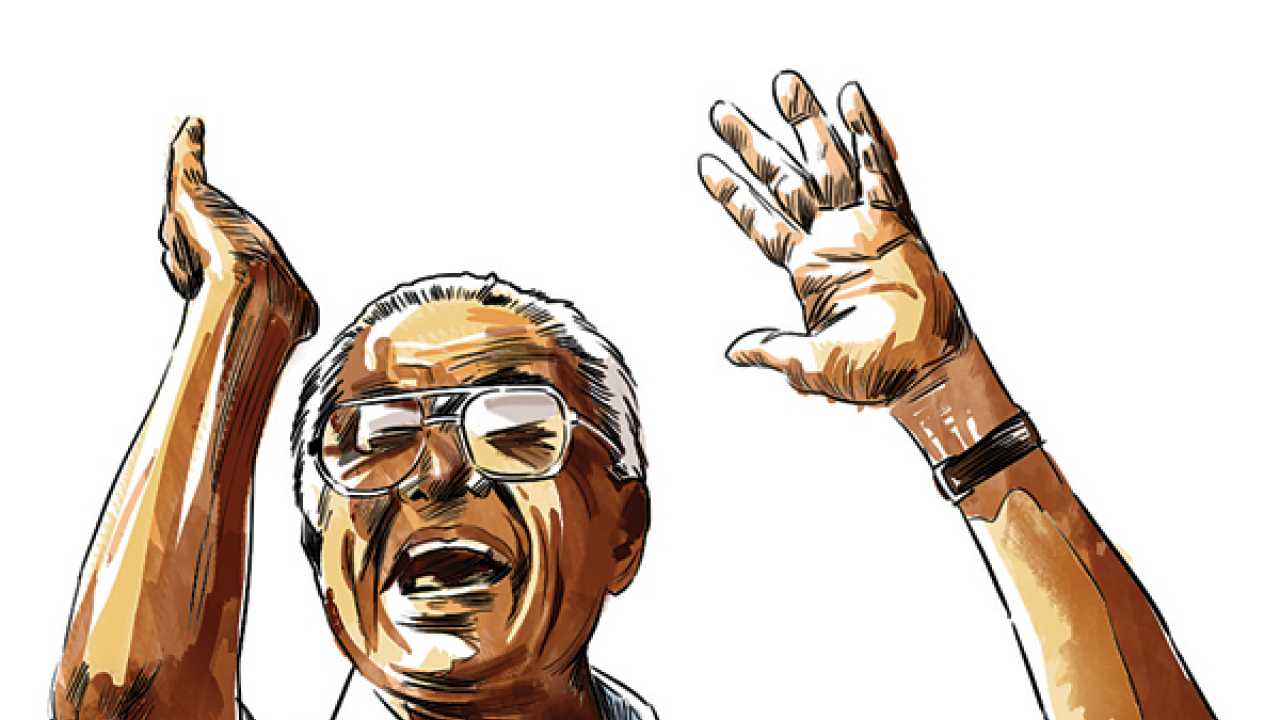
Comrade Govind Pansare died late on Friday. While he was well-known in and around Kolhapur, he remains less known in the rest of Maharashtra and India only because he eschewed publicity for solid work. So who was he? Was he an advocate or trade union leader? Was he a member of the Communist Party of India or a social activist?
He was all of the above. The Govind Pansare I knew was a multi-faceted man driven by the agendas of secularism and helping the poor. Yet, despite his many hats, he was never dogmatic or rigid. The best example of this comes from his role as a trade union leader, which he essayed for 60 long years.
Pansare was born into a poor family in Kolhar village in Ahmadnagar district on 26 November, 1933. He studied law from Rajaram College in Kolhapur, and later worked in different jobs such as an office assistant and newspaper vendor, even teaching in a school before taking up law in 1964 in Kolhapur.
As an advocate, Pansare had opportunities to become wealthy, but he never forgot his humble origins or the cause of the poor. Alongside his practice, he continued his work for trade unions and social causes. He also joined the Communist Party of India, and remained a member till the very end.
Yet, even as he remained an idealist, Pansare was never dogmatic and courageously took up positions that went against the popular grain. Thus, in 1987, he asked the 1,000 workers in the company Menon & Menon to take a 20% wage cut to save the company from liquidation. This was at a time when another well-known textile mills' trade leader had refused to compromise, and in the bargain forced the textile mills to shut down and rendered tens of thousands of workers jobless overnight. Pansare's foresight did not just save the workers their jobs, today, this company is valued at Rs 300-crore, employing 1,500 people.
Yet, when VRS (Voluntary Retirement Schemes) became a vogue, Pansare never supported it and asked his union members not to accept it, realising that VRS was simply a tactic to remove healthy and willing workers from the company. His commitment always was to ensuring that workers remained gainfully employed.
Panasare's commitment to secularism was profound, and he was pained by the Hinduisation of Chhatrapati Shivaji Maharaj in the 1980s and 1990, when it had become fashionable to show Shivaji as a 'Hindu' king who fought against Muslims. Pansare undertook painstaking research and wrote a book to show that far from being a king who fought only for Hindu causes, Shivaji was a secular king who fought Muslim kings for political reasons, even as his own army comprised of Muslims soldiers and officers. Surely a king who willingly accepted Muslims in his army could hardly be anti-Muslim.
In his personal life, he remained spartan, living his whole life in a modest dwelling when he could have easily moved into a larger house. About 10 years ago, he lost his only son, who was then around 35 years old, a promising lawyer and the apple of his parents' eyes. Despite his immense grief, three days after his son's death, he came over to meet me to discuss a legal matter. Sadly, Pansare was unable to ever win an election. He lacked monetary power and refused to take help from the sugar barons that dominate the Kolhapur region.
I had the privilege of working along with Pansare when he took up one of the most vexatious issues in Maharashtra: Road tolls. For him, tolls weren't just unjustified, but a source of unending corruption that merely enriched the politicians at the cost of the common man. This matter remains mired in the courts and political arenas. Perhaps the best proof that Pansare's work against tolls was making an impact is the fact that today, many believe he was shot dead for espousing this particular cause.
Maharashtra has seen three of its activists killed in recent times -- Satish Shetty, Narendra Dabholkar, and now Govind Pansare. Clearly there are strong forces trying to silence the voice of activists. Knowing Pansare, I can only say that had he recovered, he would have plunged back into his causes with renewed vigour. I am sure others will now take up his causes that remain incomplete.
Rest in Peace, Pansare Sir. You will never be forgotten.
Abhay Nevagi had known Govind Pansare for 35 years, and was his junior lawyer in Kolhapur in the early 1980s. He is currently the head of the law firm Abhay Nevagi & Associates. He penned